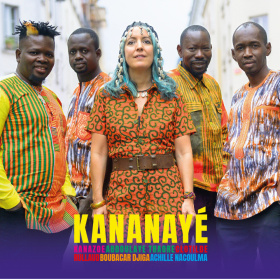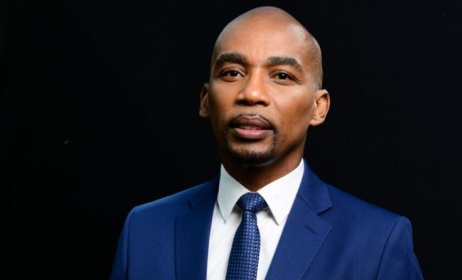'SAMRO is tightening its belt' amid SABC bailout
The Southern African Music Rights Organisation’s (SAMRO's) executive management team has released a statement saying that it is putting in place measures to ensure it operates on principles of prudent financial management that will benefit its primary stakeholders.
 SAMRO interim CEO Ditebogo Modiba.
SAMRO interim CEO Ditebogo Modiba.
The management said its biggest challenge was the non-payment of licence fees by organisations that broadcast music, which was directly hurting the musicians waiting for royalty payments.
SAMRO said companies that failed to pay licence fees placed the collective management organisation’s (CMO's) 20 000 members at financial risk and threatened the sustainability of the organisation as a whole.
“We are well aware of public perceptions about SAMRO due to events in recent years,” SAMRO interim CEO Ditebogo Modiba said. “While awaiting finality on ongoing investigations, we, as a collective, have decided to take the bold step to future-proof the organisation."
Although SAMRO did not name and shame the biggest defaulters in its statement, the South African Broadcasting Corporation (SABC) is one of the organisations that owes SAMRO, and by extension the CMO's members, the most money. It was reported in Parliament on 13 March 2019 that the SABC owed R250m ($16.5m) in royalties, of which R126m was meant to be paid out to SAMRO. SAMRO stakeholder relations officer advocate Nkateko Maluleke told IOL: “There are other streams of revenue for our clients, but the SABC represents a bigger portion of our income so we had to give them prior warning to expect a little less this month.”
On Monday, the South African government handed the state-owned SABC a R2.1bn bailout, but it is unclear whether any of that money will go to SAMRO and other CMOs such as SAMPRA, AIRCO, RiSA and CAPASSO. The R2.1bn lifeline given to the SABC is only a portion of the R3.2bn the public broadcaster requested from the government to keep operations going.
And now it seems SAMRO isn’t betting on getting any of the SABC bailout money, with Modiba saying that SAMRO will continue with its drive to expand its services in the southern African region and identify cost-saving measures in view of the declining economic climate.
“Our licensing team continues to seek new commercially viable licensees in the southern African region, and prospects are promising,” she said.
“We have begun to tighten the belt from within. Unfortunately, this affects the organisation’s ability to employ more personnel, but we cannot continue increasing staff at the expense of our members. This is why we have put a freeze on our headcount and reduced the use of temporary staff.
“Unfortunately, the measures we have taken as an executive management team are unpopular and will not please everybody. However, our core reason for existing is for the benefit of our members, and as such we will always prioritise their needs. When our members are rightfully taken care of, then so are we. It is in the interest of all at SAMRO to carve out a respectable space for South African musical talent both locally and abroad. As custodians of these talented people’s intellectual property, we intend to deliver on our promise.
“Overall, we remain committed to serving our members as best as we can. We understand the times we are operating in are not just challenging to SAMRO, but to every organisation nationally. To this end, we will continue to find ways to adapt to the economic climate in order to remain an efficient and commercially viable entity.”
SAMRO also said its board of directors was assessing various tech options to help modernise its operations and make them more efficient.






















Commentaires
s'identifier or register to post comments